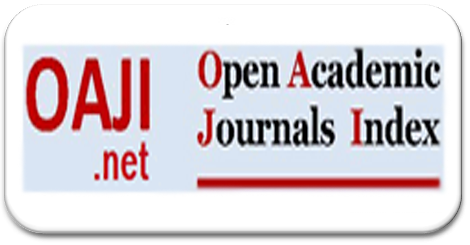Konsep Epitemologi Paradigma Thomas Khun
Abstract
Keywords
Full Text:
PDFReferences
Alparslan Acikgence, Scientific Thought And Its Burdens, An Essay in the History
and Philosophy of Science, (Fatih University Publications, 2000).
Alparslan Acikgence, "The Framework for A history of Islamic Philosophy", Al-Shajarah, Journal of The International Institute of Islamic Thought and Civilization (ISTAC), 1996, jilid1. Nomor 1&2.
George Ritzer, Sosiologi Pengetahuan Berparadigma Ganda, terj. Alimandan, cet. 5, (Jakarta: Rajawali Press, 2004).
The Columbia Encyclopedia, Ed. 3, (Washington D.C.: National Science Teachers Association, 1963).
Husain Heriyanto, Paradigma Holistik Dialog Filsafat, Sains,dan Kehidupan Menurut Shadra dan Whitehead, (Jakarta Selatan: Teraju, 2003).
J.Needham et.al. A Shorter Science and Civilization in China, vol . I ( Cambridge : Cambridge University Press, 1978).
Joyce M. Hawkins, Kamus Dwibahasa Oxford Fajar, Ed. 3, cet. 2, (Malaysia: Fajar Bakti Sdn Bhd., 2002).
Longman, Longman Dictionary Of American English, cet. 3, (China: Morton Word Processing Ltd., 2002).
Moeflich Hasbullah (Ed.), Islamisasi Ilmu Pengetahuan, (Jakarta: Pustaka Cidesindo, 2000).
Ninian Smart, Worldview, Crosscultural Explorations of Human Belief, (New York: Charles Sribner's sons).
Patton, M. Q., Qualitative Evaluation and Research Methods , Edisi: Second, ( Newbury Park, CA: Sage, 1990).
Pervez Hoodbhoy, Islam and Science, (Kuala Lumpur: Abdul Majeed & Co., 1992).
Syed Muhammad Naquib Al-Attas “Opening Address The Worldview of Islam: An Outline” dalam Sharifah Shifa Al-attas (Ed.), Islam and Challenge of Modernity, (Kuala Lumpur: ISTAC, 1996).
The Grolier International Inc., Encyclopedia Americana, (Canada: Americana Corporation, 1980).
Thomas F Wall, Thinking Critically About Philosophical Problem, A Modern Introduction, (Australia: Thomson Learning, 2001).
Thomas Kuhn, The Structure of Scientific Revolutions, Ed. 2, (Chicago : University of Chicago Press, 1970).
Ziauddin Sardar, Thomas Kuhn dan Perang Ilmu, (Jogyakarta: Jendela, 2002)
DOI: http://dx.doi.org/10.22373/substantia.v14i2.4874
Refbacks
- There are currently no refbacks.
Copyright (c) 2012 Nurkhalis Nurkhalis

This work is licensed under a Creative Commons Attribution-NonCommercial 4.0 International License.
SUBSTANTIA: JURNAL ILMU-ILMU USHULUDDIN
DITERBIKAN OLEH:
FAKULTAS USHULUDDIN DAN FILSAFAT
UNIVERSITAS ISLAM NEGERI (UIN) AR-RANIRY BANDA ACEH, ACEH INDONESIA
ALAMAT REDAKSI:
Gedung Fakultas Ushuluddin Lantai II, Fakultas Ushuluddin, UIN Ar-Raniry, Jln. Lingkar Kampus, Kopelma Darussalam Banda Aceh, Aceh 23111.Telp. (0651)7551295. eMail: substantia.adm@gmail.com

This work is licensed under a Creative Commons Attribution-NonCommercial 4.0 International License.


.png)




















